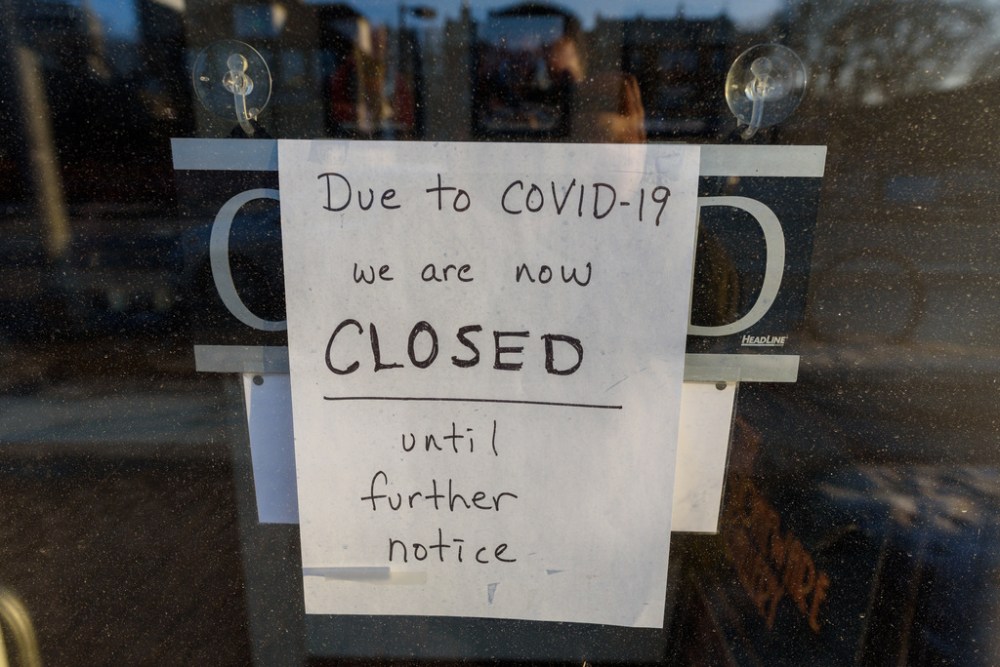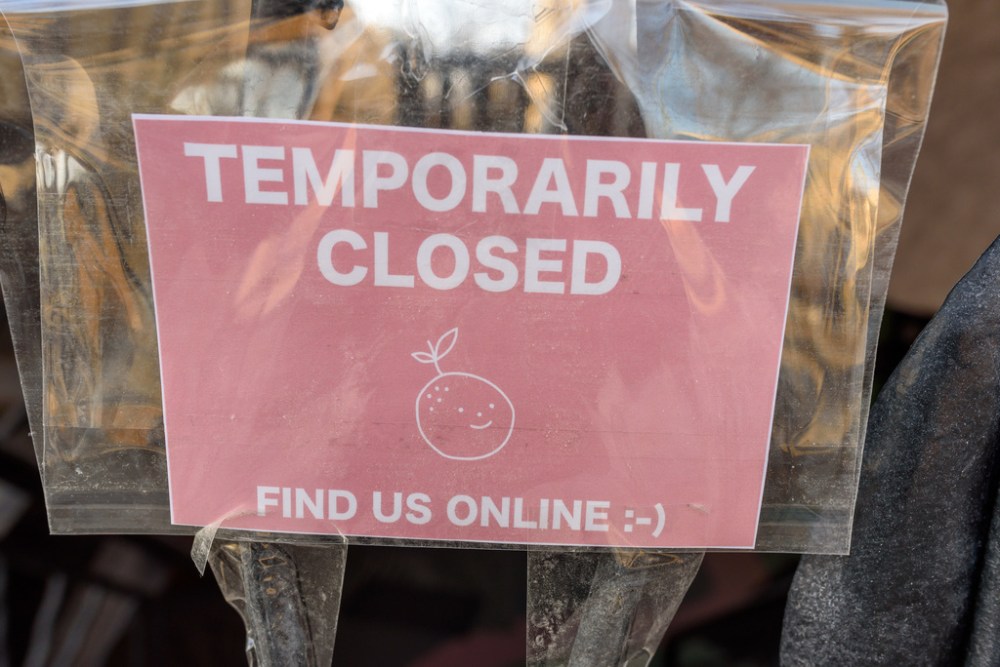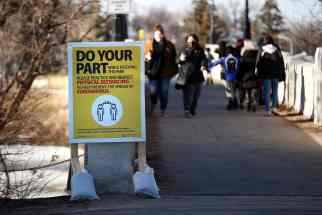Beware the fair-weather friend of small business
Read this article for free:
or
Already have an account? Log in here »
To continue reading, please subscribe:
Monthly Digital Subscription
$0 for the first 4 weeks*
- Enjoy unlimited reading on winnipegfreepress.com
- Read the E-Edition, our digital replica newspaper
- Access News Break, our award-winning app
- Play interactive puzzles
*No charge for 4 weeks then price increases to the regular rate of $19.00 plus GST every four weeks. Offer available to new and qualified returning subscribers only. Cancel any time.
Monthly Digital Subscription
$4.75/week*
- Enjoy unlimited reading on winnipegfreepress.com
- Read the E-Edition, our digital replica newspaper
- Access News Break, our award-winning app
- Play interactive puzzles
*Billed as $19 plus GST every four weeks. Cancel any time.
To continue reading, please subscribe:
Add Free Press access to your Brandon Sun subscription for only an additional
$1 for the first 4 weeks*
*Your next subscription payment will increase by $1.00 and you will be charged $16.99 plus GST for four weeks. After four weeks, your payment will increase to $23.99 plus GST every four weeks.
Read unlimited articles for free today:
or
Already have an account? Log in here »
Hey there, time traveller!
This article was published 14/04/2020 (2065 days ago), so information in it may no longer be current.
For a politician who claims to be a friend of small business, Manitoba Premier Brian Pallister isn’t doing much to help the hundreds — perhaps thousands — of companies that may not make it through the COVID-19 crisis.
The premier appears to be doing everything he can to avoid providing small business with any meaningful financial assistance, even though thousands have been ordered by the province to close their doors.
Pallister continued to give lip service Monday to the importance of small business in Manitoba, describing the sector as “the backbone” of the economy.
During normal economic times, small business pays a large portion of the taxes governments use to fund front-line services, such as health care and education. Now, that sector is hurting. Government needs to step up and help small businesses remain solvent so they can bounce back once social-distancing measures are lifted, Pallister said.
It sounded like he was about to unveil a significant provincial aid package; instead, Pallister announced Manitoba plans to set up an information network to help businesses access federal government dollars.
What a disappointment — and a major fail for a premier who doesn’t appear to understand the ramifications of allowing scores of small businesses to go bankrupt due to the novel coronavirus pandemic. Trying to take credit for a federal program will not help this sector avoid insolvency.
This isn’t a normal economic downturn, where survival of the fittest rules the day. In many cases, businesses — including restaurants, bars, shoe stores and musical instrument stores — are forbidden, under provincial law, from opening their doors. The best many can do is sell products online, or through curbside pickup.
The province has issued a schedule that identifies which categories of companies can stay open. It’s an arbitrary list to some degree. It allows, for example, travel agencies and car rental companies to open (hardly “critical” services), but not clothing or flower shops.
Deciding which businesses can operate during a pandemic is no easy feat (especially when government has to make hundreds of critical decisions every week). We can cut policy makers some slack when assessing the quality of their decisions during this extraordinary period.
Pallister’s failure to provide small business with any meaningful financial assistance, however, is a gargantuan public policy error.

Governments have no choice but to enforce social-distancing measures. It’s a matter of life and death. We can’t have people congregating in bars and restaurants, or hanging out in large numbers anywhere. Only the most essential services should be open to the public.
Those measures are paying off: Manitoba’s infection levels are relatively low and the number of COVID-19 patients requiring hospitalization has remained below 12 most days. There has been tremendous buy-in from Manitobans.
Meanwhile, small businesses, particularly those forced by law to close, are paying a disproportionate price.
There is financial aid for most individuals who lose their jobs, including the Canada Emergency Response Benefit (which provides $2,000 a month to people who can no longer work), but government help for small business is spotty.
The federal wage subsidy will help some companies; however, it’s been documented a large percentage either don’t qualify or won’t benefit because they have almost no revenue.
A Canadian Federation of Independent Business member survey shows 32 per cent of small businesses in Manitoba say they won’t benefit from the wage subsidy. Another 24 per cent said they don’t know if the subsidy will help. Many don’t qualify because they don’t meet the revenue-drop criteria. Others have already shut their doors.
When a company has zero revenue, a wage subsidy doesn’t help. Businesses still have to pay rent, utilities, insurance and other fixed costs. Many won’t survive an extended, government-mandated shutdown.

If government is going to force companies to close, it has a moral obligation to compensate them. Provinces such as Saskatchewan are providing at least some cash support.
The Manitoba premier’s failure to do so is negligent and shows extremely poor judgement.
tom.brodbeck@freepress.mb.ca

Tom has been covering Manitoba politics since the early 1990s and joined the Winnipeg Free Press news team in 2019.
Our newsroom depends on a growing audience of readers to power our journalism. If you are not a paid reader, please consider becoming a subscriber.
Our newsroom depends on its audience of readers to power our journalism. Thank you for your support.







